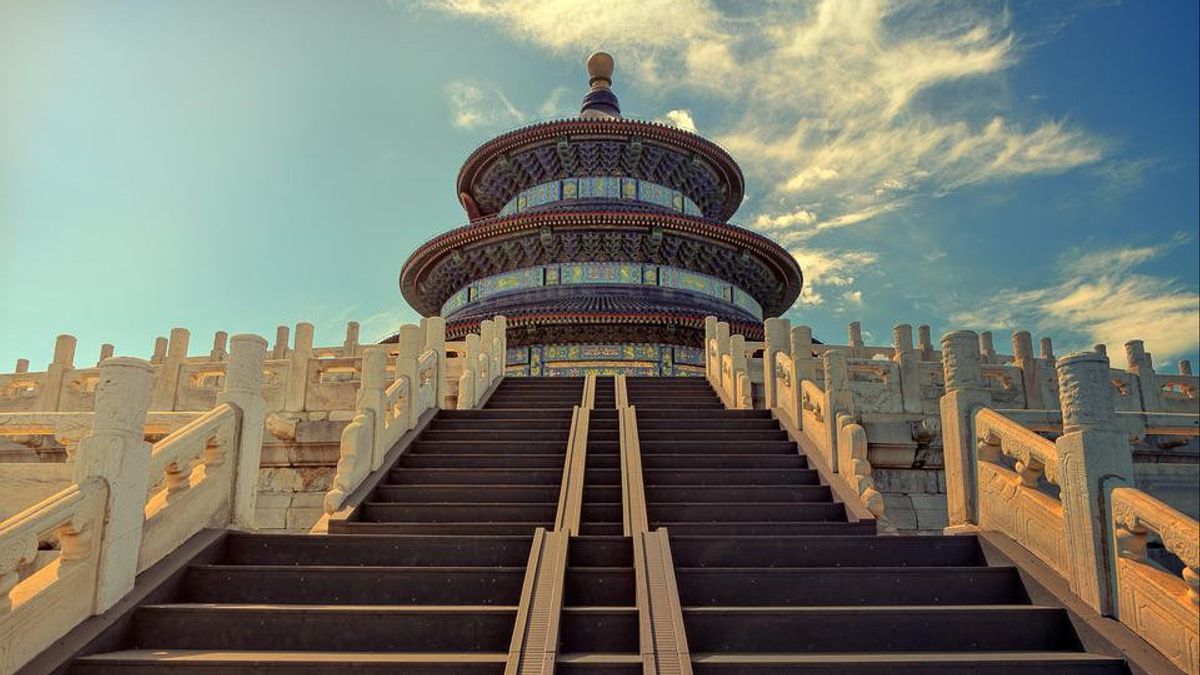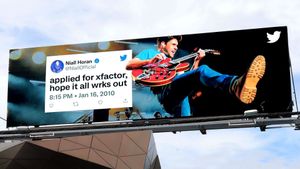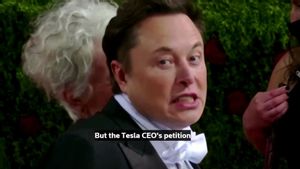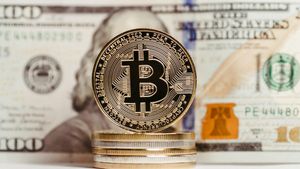JAKARTA - The Chinese government has banned around 1.4 billion citizens from using Twitter. But local authorities also spend on advertising globally on micro blogging companies. In fact, the large advertising spending makes the country the fastest growing overseas advertising market on social media platforms. They are becoming one of the largest non-US sources of income on social media.
According to a Reuters report on publicly available Chinese government tenders, budget documents, and tweets promoted from 2020 to 2022 show local government authorities and Chinese Communist Party propaganda offices for cities, provinces, and even districts across the country have been flocking to shop ads to Twitter.
These promotions are often outsourced by local governments to state media. The promotion itself showcases local attractions, as well as cultural and economic achievements, to an international audience. Such ads are permitted under Twitter's exclusionary ban on government media advertising.
The review shows for the first time how important China is to Twitter. Especially under pressure from investors to meet growth targets because its US business is currently stalled.
Four sources also told Reuters that operations in China were a source of internal clashes between teams seeking to maximize advertising sales opportunities and others with an interest in maintaining business relationships with entities affiliated with the US government at a time of heightened tensions between Beijing and Washington.
Twitter's dealings in China surfaced on Tuesday, September 13, when the US Senate Judiciary Committee convened a hearing to consider a complaint filed by former Twitter security chief Peiter "Mudge" Zatko.
He referred to this Reuters story when testifying about how the FBI informed Twitter that there were Chinese agents working at the company.
Among other claims, his 84-page complaint alleges "Twitter executives know that accepting Chinese money risks harm to users in China," and that "Mr. Zatko was told that Twitter is too dependent on its current revenue stream to do anything other than increase it." ." Reuters was unable to independently verify the claims. Twitter itself has denied the allegations.
During the trial, US Senator Chuck Grassley said that Zatko's report to the committee alleged that the FBI informed Twitter that at least one Chinese agent was at the company.
SEE ALSO:
Zatko said during the trial that the agent allegedly came from China's Ministry of State Security, the country's main espionage agency.
The former executive told the hearing that Twitter employees had been "disturbed" that, despite being banned in China, the platform received money from organizations linked to the Chinese government, resulting in an "internal conundrum".
"The response was that we were asleep. It would be a problem if we lost that income stream, so find a way to make people comfortable with it," Zatko told senators.
Two sources familiar with the matter also said that Twitter's sales team in China is actively approaching local governments in the country as part of its global strategy to compete in the ad business with technology rivals such as Alphabet's Google and Meta's Facebook.
According to the two sources, gaming, e-commerce and technology companies in China are also Twitter's main customers. Twitter's overseas advertising sales to Chinese clients are estimated at "hundreds of millions of dollars a year, most of which comes from these companies.
While Twitter itself declined to comment on internal discussions and sales performance in China. A Twitter spokesperson said the company never hides the fact that it does business with Chinese commercial entities.
Twitter Ads Ban
Twitter banned political advertising and state media in 2019, despite an August blog announcement that year allowing for ads "from (state media) accounts solely dedicated to entertainment, sports and travel content". However, in March this year, that exemption was overturned, effectively banning state media companies from advertising on Twitter altogether.
In a March Twitter blog post, Twitter's vice president of global public policy, Sinead McSweeney, said that a "severe information imbalance" is created when governments that block access to Twitter in their states continue to use it for their own communications.
However, Reuters found dozens of advertisements for China's local governments, as well as for state media itself, published on Twitter since March. Twitter, like other platforms, also earns revenue when advertisers deliver advertisements through self-service online platforms.
Twitter says it is improving its auto-detection technology aimed at activity that violates platform policies. "This work is challenging and we know we still have a lot to do," Twitter said in a statement.
The Chinese Communist Party's main propaganda organ and the central government's ministry of culture and tourism, both based in Beijing, did not respond to requests for comment from Reuters on this report.
The English, Chinese, Japanese, Arabic, and French versions are automatically generated by the AI. So there may still be inaccuracies in translating, please always see Indonesian as our main language. (system supported by DigitalSiber.id)













